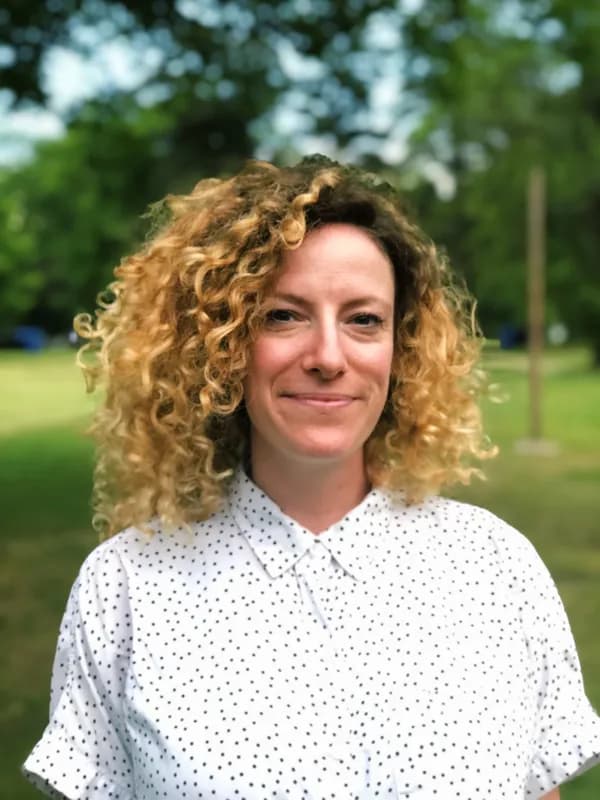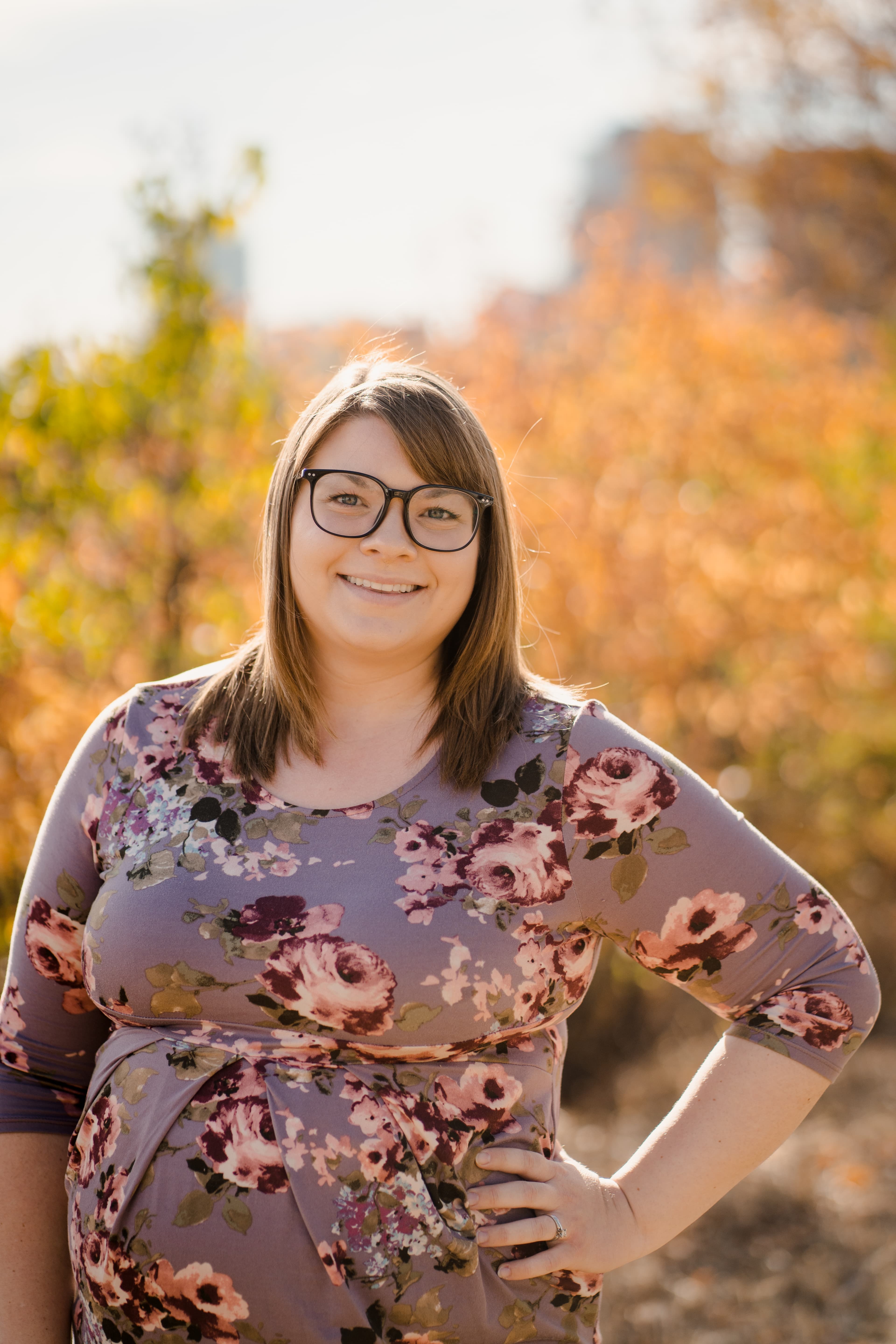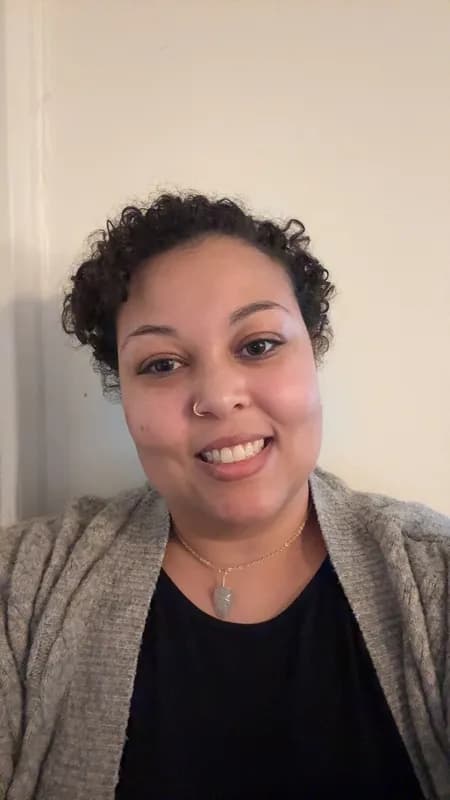Therapy for family relationships

Your family feels disconnected, like everyone is living separate lives under the same roof. Maybe you want to strengthen bonds before problems develop, or rebuild closeness that has faded over time. Perhaps a major transition has changed your family dynamic and you are figuring out how to adapt together. Strong family relationships do not happen by accident. They require intention, understanding, and sometimes guidance. Therapy can help your family grow closer and build the connections you are hoping for.
Understanding family relationship therapy
Beyond crisis intervention
Family therapy is not just for families in crisis. Many families seek therapy to strengthen already decent relationships, navigate transitions smoothly, or prevent small disconnections from becoming major rifts. Family relationship therapy focuses on building connection, understanding, and resilience while helping families develop skills for navigating life's challenges together.
Common reasons families seek support
Families come to therapy for many reasons. Major transitions like a new baby, children entering adolescence, launching adult children, retirement, or blending families after remarriage all shift dynamics. Some families feel disconnected due to busy schedules. Others want to heal old wounds before they damage the next generation or simply become better at being a family. Preventive family therapy strengthens resilience and helps families weather future challenges more effectively.
The power of positive family connections
Research shows family relationships have profound lifelong impacts. Children with strong family bonds are 49% more likely to flourish in life, showing better academic performance, emotional health, and social skills. Positive adolescent family relationships are linked to better mental health into midlife. The quality of your family connections affects everything from stress management to physical health, making relationship focused therapy a powerful investment in wellbeing.
Family relationships in Canada
Family connection is central to wellbeing across the lifespan. Regular contact and positive relationships correlate with better mental and physical health outcomes. See more onStatistics Canada and Family relationship research.
Why strong family relationships matter
Foundation for child development
Children thrive in families with strong, secure relationships. When kids feel connected to parents and siblings, they develop better emotional regulation, higher self esteem, and stronger social skills. Family relationship quality predicts academic success and mental health outcomes. Kids with secure family attachments are more resilient, willing to take healthy risks, and better equipped to build meaningful relationships outside the family.
Buffer against life stress
Strong family relationships provide crucial support during difficult times. When facing job loss, illness, grief, or other hardships, having family you can truly lean on makes an enormous difference. Families with solid connections navigate crises more effectively because they have already developed trust, communication skills, and problem solving abilities.
Lifelong health and wellbeing
Family relationship quality affects health across your lifespan. People with strong family connections have lower rates of depression and anxiety, better immune function, faster recovery from illness, and longer lifespans. Adolescents with close family relationships are less likely to engage in risky behaviours. Adults with strong family ties report higher life satisfaction and greater sense of purpose.
Creating positive generational patterns
How you relate as a family now shapes patterns for generations. Children learn relationship skills by watching parents and experiencing family dynamics. When you invest in healthy family relationships, you teach your children how to build strong relationships in their future families. You break negative cycles and create positive legacies that ripple forward through generations.
How therapy builds stronger family bonds
Intentional relationship building
Family therapy provides dedicated time and space to focus on relationships that busy life rarely allows. Your therapist helps you understand each other more deeply, identify strengths, develop better communication patterns, and create intentional practices for staying connected. The process reveals blind spots, teaches specific skills, and holds you accountable to implementing changes rather than just talking about them.
Therapeutic approaches for strengthening families
Attachment based family therapy
This approach focuses on emotional bonds between family members. It helps families create secure connections where everyone feels safe enough to be vulnerable, confident they will be supported, and able to explore knowing family is their secure base. You work on responding to each other's emotional needs, repairing ruptures in connection, and building trust through consistent, attuned interactions.
Positive psychology for families
Rather than focusing on problems, this approach helps families identify and amplify strengths, cultivate gratitude, develop rituals around shared values, and build collective resilience. You explore character strengths each family member brings, create positive shared experiences, and establish practices that foster wellbeing. This approach helps families move from fine to thriving.
Narrative family therapy
Families create stories about themselves that can become limiting. Narrative therapy helps you examine these stories and consciously choose which narratives to embrace. You uncover hidden strengths, reframe challenges as opportunities, and co-author new family stories that reflect who you want to be. This approach empowers families to actively author their relationships.
Systemic family therapy
This approach examines patterns, roles, and dynamics in the family system. How does each person's behaviour affect others? What unspoken rules govern your family? Systemic therapy helps families understand themselves as an interconnected whole where changes in one part affect everyone. You develop awareness of helpful and unhelpful patterns, then intentionally shift toward healthier dynamics.
Emotionally focused family therapy
This approach helps families understand the emotional underpinnings of relationships. What do family members need to feel secure? What fears drive disconnection? Emotionally focused therapy creates conversations where family members express vulnerable feelings and have them met with understanding. These emotional connections often heal relationships that logic never could.
The family therapy journey
Understanding your family system
Early sessions involve getting to know your family: history, current dynamics, personalities, and relationship patterns. Your therapist asks about strengths, challenges, values, and aspirations. They observe how you interact and identify patterns you might not notice from inside the system. By the end of assessment, you have clarity about what you are working toward and why.
Building skills and new patterns
Middle sessions focus on developing specific relationship skills and trying new patterns. You might work on active listening, expressing appreciation, managing disagreements constructively, or supporting individual growth while maintaining connection. The therapist teaches these skills, then has you practice in session with real time coaching. You also try specific practices at home that fit your family's unique personality and schedule.
Consolidating change and moving forward
As new patterns become natural, family culture shifts. Most families work with a therapist for 10 to 20 sessions, noticing small changes within weeks and more substantial shifts around 8 to 12 sessions. Success looks different for each family, whether that is genuinely wanting to spend time together, siblings supporting each other, or family gatherings feeling warm instead of obligatory. Many families schedule periodic check ins during predictable stress points to maintain momentum.
Find a therapist for family relationships
Choosing the right therapist matters. Each province in Canada has its own regulations, which is why working with a recognized professional can make a real difference in your care. Stellocare takes the uncertainty out of the process by listing only verified therapists you can trust.
The right therapist for you
No therapists found with these specialties in Ontario.
Try selecting a different province.Resources and support
Canadian family relationship programs
EarlyON Child and Family Centres
Free programs across Ontario for families with children birth to 6 years. Offers play based learning, parenting support, early childhood education, and connection with other families. Over 750 centres plus 450 additional locations in libraries, schools, and community centres across the province.Find a centre near you.
Parent Support Services Society of BC
Offers free parenting support groups in multiple languages across BC. Provides workshops, community events, and volunteer led circles for parents and caregivers. Includes specialized support for grandparents raising grandchildren and culturally specific programming. Phone general enquiries or check website for regional contacts.Visit website.
Parent Resource Centre Ottawa
Builds confident, resilient families through engaging programs, social services, and supportive resources for children, youth, parents, and caregivers. Offers play based programming, parent education, and family connection activities in a welcoming environment. Located at 300 Goulburn Crescent, Ottawa.Visit website.
Families Matter Calgary
Strengthens families through learning opportunities that build confidence, competence, and connection through life's transitions. Promotes optimal child development by empowering families to be resilient and foster positive relationships. Offers various family programs and father involvement initiatives.Visit website.
Public Health Agency of Canada Parenting Resources
National resource hub providing information on child safety, injury prevention, fatherhood practices, and culturally responsive parenting. Includes resources for separation and divorce, Indigenous communities, and various family structures. Access information on raising children in safe and healthy environments.Access resources.
Building connection through daily practices
Connection rituals
- Family meals: Even 3 to 4 shared meals weekly strengthen relationships. Create device free zones, ask open ended questions beyond "How was your day?", and let everyone share without judgment. The magic is in the conversation and presence, not the food.
- One on one time: Each child needs individual attention from parents. Even 15 to 20 minutes of undivided attention weekly makes children feel valued. Let them choose the activity, put away your phone, and be fully present.
- Goodbye and reunion rituals: How you start and end days matters. Morning goodbyes and evening reunions are transition points where small rituals create security. Even 30 seconds of intentional connection during rushed moments pays enormous dividends in relationship quality.
Emotional connection
- Express appreciation: Make gratitude a daily practice. Notice and verbally acknowledge what family members do. Be specific rather than generic. Model this for children so they learn gratitude by experiencing and seeing it practiced.
- Emotional attunement: When family members express feelings, pause your own agenda to really listen. Reflect what you hear and validate feelings even when you disagree with behaviours. This builds trust and helps everyone develop emotional intelligence.
- Repair after disconnection: All families experience disconnection. What matters is repair. Apologize genuinely when you mess up, even to your kids. Model taking responsibility without excessive self criticism. Quick, honest repair after ruptures builds trust and resilience.
Supporting individual and collective growth
- Support individual development: Strong families encourage individual growth, not just togetherness. Show genuine interest in each person's passions even when you do not share them. Support age appropriate autonomy. Children who feel supported in their individual identities maintain closer family relationships as adults.
- Create family traditions: Traditions do not need to be elaborate, just consistent and meaningful. Weekly game nights, annual camping trips, holiday rituals unique to your family, or special birthday traditions create shared experiences and family identity. These are the memories that bind families together.
- Physical affection: Appropriate physical affection strengthens bonds across ages. Hugs, pats on the shoulder, sitting close while watching TV all communicate safety and belonging. Respect individual comfort levels, especially with adolescents who might temporarily pull back, which is normal.
Questions about family relationship therapy
We are not in crisis. Can therapy still help us?
Absolutely. Preventive therapy is incredibly valuable and often more effective than crisis intervention. Families who seek help before problems become entrenched typically see faster progress. Think of it as relationship education and enrichment rather than problem solving. Many families use therapy for skill building during transitions or simply to move from fine to thriving.
How is this different from parenting classes?
Parenting classes teach general strategies. Family therapy tailors approaches to your specific family dynamics, personalities, and challenges. You get personalized guidance based on what is actually happening in your relationships, not just theoretical best practices. Family therapy also involves all family members actively, not just educating parents.
Will therapy help if our kids are already adults?
Yes. Adult family relationships benefit enormously from therapy. Many families work on shifting from parent child dynamics to adult adult relationships, healing old wounds, navigating new roles as grandparents, or simply improving connection. Adult children often have more motivation and capacity for insight, making therapy particularly productive.
How do we find time with busy schedules?
Many family therapists offer flexible scheduling including evenings and weekends, and virtual therapy makes coordination easier. If coordinating everyone simultaneously proves impossible, your therapist might see subsystems separately or rotate who attends. The investment of an hour weekly or biweekly pays off in reduced family stress and improved quality of life.
Can therapy help blended families adjust?
Absolutely. Blended families face unique challenges like navigating new relationships, handling loyalty conflicts, and establishing new family culture while respecting previous ones. Family therapy helps blended families develop realistic expectations, create fair structures, and build cohesion while respecting everyone's adjustment process. Early intervention often prevents serious problems from developing.
What if we discover bigger problems during therapy?
Sometimes therapy uncovers issues you did not know existed. Good therapists handle these discoveries sensitively, helping families address new information constructively. Discovering problems is not a failure, it is an opportunity to get appropriate help. Your therapist will guide you through addressing whatever emerges.
Related concerns
References
- Statistics Canada. (2025). Being satisfied with family relationships is related to positive well-being, 2024. Retrieved from https://www150.statcan.gc.ca/n1/daily-quotidien/250219/dq250219a-eng.htm
- Statistics Canada. (2014). Canadians' connections with family and friends. Retrieved from https://www150.statcan.gc.ca/n1/pub/89-652-x/89-652-x2014006-eng.htm
- Whitaker, R. (2022). Children with strong family bonds have a high chance of flourishing in life. CNN Health. Retrieved from https://www.cnn.com/2022/05/20/health/family-connections-flourish-parenting-study-wellness/index.html
- Foshee, V. A., et al. (2019). Association of Positive Family Relationships With Mental Health Trajectories From Adolescence to Midlife. JAMA Pediatrics. Retrieved from https://pmc.ncbi.nlm.nih.gov/articles/PMC6784807/
- Umberson, D., & Montez, J. K. (2017). Family Relationships and Well-Being. PMC. Retrieved from https://pmc.ncbi.nlm.nih.gov/articles/PMC5954612/
- Government of Ontario. (2025). Find an EarlyON Child and Family Centre. Retrieved from https://www.ontario.ca/page/find-earlyon-child-and-family-centre
- Parent Support Services Society of BC. (2025). Home. Retrieved from https://parentsupportbc.ca/
- Parent Resource Centre. (2025). Home. Retrieved from https://www.parentresource.ca/
- Public Health Agency of Canada. (2025). Parenting Resources and Support. Retrieved from https://www.canada.ca/en/public-health/services/health-promotion/childhood-adolescence/parent/parenting-resources-support.html
- Families Matter. (2025). Home. Retrieved from https://familiesmatter.ca/
About Stellocare
Stellocare is a Canadian platform where you can find the best fit therapist for you. Search the right thperaists now by asking our AI, browsing our list, or finding our social workers for personal referral.

Kat Sevsek
Registered Psychotherapist (Qualifying) (ON)

Maya Dousti
Registered Psychotherapist (ON)

Amanda Ross
Registered Social Worker (ON)

Myroslava Stadnyk
Registered Psychotherapist (ON)

Kaitlin Schamber
Registered Psychologist (AB)

Marissa Perreault
Registered Psychotherapist (Qualifying) (ON)

Ashley Neveu
Registered Psychotherapist (ON)

Stacy Kirkbride
Registered Psychotherapist (ON)

Nicola Wolters
Registered Psychotherapist (Qualifying) (ON)

Ed Chen
Registered Clinical Counsellor (BC)

Carol Ma
Registered Social Worker (ON)

Katharine Heimbigner-Tenor
Registered Provisional Psychologist (AB)

Shahed Tawfeeq
Registered Psychotherapist (Qualifying) (ON)

Shani Ellis-Alman
Registered Social Worker (ON)

Debra Airth
Registered Therapeutic Counsellor (BC)

Christine Griffiths
Registered Psychotherapist (ON)

Jonathon Zarb
Registered Psychotherapist (ON)

Gauri Mathur
Registered Psychotherapist (ON)

KATHY MOSBAUGH
Registered Psychotherapist (ON)

Mat Dean
Registered Psychotherapist (ON)

Kat Sevsek
Registered Psychotherapist (Qualifying) (ON)

Maya Dousti
Registered Psychotherapist (ON)

Amanda Ross
Registered Social Worker (ON)

Myroslava Stadnyk
Registered Psychotherapist (ON)

Kaitlin Schamber
Registered Psychologist (AB)

Marissa Perreault
Registered Psychotherapist (Qualifying) (ON)

Ashley Neveu
Registered Psychotherapist (ON)

Stacy Kirkbride
Registered Psychotherapist (ON)

Nicola Wolters
Registered Psychotherapist (Qualifying) (ON)

Ed Chen
Registered Clinical Counsellor (BC)

Carol Ma
Registered Social Worker (ON)

Katharine Heimbigner-Tenor
Registered Provisional Psychologist (AB)

Shahed Tawfeeq
Registered Psychotherapist (Qualifying) (ON)

Shani Ellis-Alman
Registered Social Worker (ON)

Debra Airth
Registered Therapeutic Counsellor (BC)

Christine Griffiths
Registered Psychotherapist (ON)

Jonathon Zarb
Registered Psychotherapist (ON)

Gauri Mathur
Registered Psychotherapist (ON)

KATHY MOSBAUGH
Registered Psychotherapist (ON)

Mat Dean
Registered Psychotherapist (ON)

